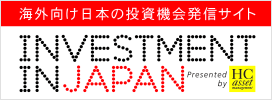HC Principles of Conduct
(Fiduciary Declaration)
HC Asset Management Co., Ltd. (“HC"), as an investment management company, shall work to the best of its ability, exclusively for the benefit of its clients, and shall pursue the best possible investment results, the purpose of which shall be to receive appropriate remuneration in return. Then, to realize our management objectives, we shall stabilize our business foundation, continuously invest in our human resources, and create an environment in which they can be fostered.
This environment is a culture that is formed through enhancing each other among all executives and employees to pursue the best and brightest, with the clients’ best interests in mind. Culture is naturally fostered from the day-to-day behaviors of all executives and employees. Therefore, we hereby establish the HC Principles of Conduct ("HC Principles") as a living code to be practiced daily by all executives and employees.
The development of the HC Principles also serves as a statement of implementation policy with respect to the Financial Services Agency (FSA) 's "Principles for Customer-Oriented Business Conduct" ("FSA Principles"), so the full text of the FSA Principles is listed in "7 The corresponding relationship with the HC Principles” is clearly indicated. Principles that are not implemented are indicated as "N/A" and the reason for the non-implementation is clearly stated in the relevant section of the HC Principles.
- 1. Background of Policy Formulation
- 1.1 In September 2014, the FSA released its " Financial Monitoring Policy for 2014-2015 (Policy for Supervision and Inspection) " to guide its financial administration, stating that "Financial institutions involved in product development, sales, investment management, and asset management are required to actually fulfill their roles and responsibilities (fiduciary duty). At that time, the FSA noted that fiduciary duty was annotated as "a generic term for a wide variety of roles and responsibilities assumed by persons who are to perform certain duties with the confidence of others." In response, on August 21, 2015, HC was the first in the financial community to formulate and publish its own code of conduct, the "HC Principles of Conduct (Fiduciary Declaration)," as an embodiment of the FSA's measures.
- 1.2 On March 30, 2017, the FSA embodied fiduciary duty and published it as the Principles for Customer-Oriented Business Conduct. HC was the first in the financial community to adopt the principles, through revising and publishing the HC Principles of Conduct (Fiduciary Declaration) on the same day.
- 1.3 On January 15, 2021, the FSA revised and published its “Principles for Customer-Oriented Business Conduct”. Then, on April 12 of the same year, FSA updated its "initiatives toward the further enhancement and dissemination of the customer-oriented business conduct among financial institutions", requesting a new format for reporting to the FSA. In response to this, and in conjunction with the full-scale development of its investment trust business, HC formulated and published the HC Principles on June 22 of the same year by fundamentally revising its "HC Principles of Conduct (Fiduciary Declaration)".
- 1.4 On September 26, 2024, the FSA revised and published its “Principles for Customer-Oriented Business Conduct”. In this revision, supplemental principles on product governance at asset management companies were added. HC revised and published HC Principles on November 21 of the same year.
- 2. Common Principles
- 2.1 Prohibition of Conflicts of Interest
- 2.1.1 No undue influence will be exerted through parties with an interest in HC in the execution of the new agreement.
- 2.1.2 In the management and administration of client assets, we do not place ourselves in a position where there is a risk of conflict of interest by not conducting any transactions between HC and interested parties.
- 2.1.3 HC appoints outside investment managers in their respective areas of expertise in the execution of its investment management. Appointment and dismissal of investment managers will be based solely on an evaluation of their investment management capabilities. HC will not enter into any business alliance with an asset management company, make any investment in an asset management company, or have any special relationship with an asset management company, regardless of the name of the relationship.
- 2.1.4 HC does not form a corporate group, nor does it have a sales department or sales targets, as it conducts its business by proposing solutions to client issues.
- 2.2 Reasonableness of Remuneration
- 2.2.1 We will apply reasonable and appropriate remuneration rates according to differences in the size of client assets and the nature of investment, etc., and will ensure fairness among clients by applying the same remuneration rates to the same services.
- 2.2.2 The remuneration rate will be determined based on appropriate management expenses, reasonably necessary to maintain the quality of HC services in a stable and permanent manner. Appropriate management expenses will be strictly controlled based on proper treatment as investment professionals, appropriate general and administrative expenses, and a reasonable capital profit margin.
- 2.3 Obligation to Do the Best
- 2.3.1 From the perspective of the clients' interest, we provide the best possible service based on rationality for the objective, going back to the background where the demand was born.
- 2.3.2 We will conduct customer-oriented business practices through organically combined business functions that originate with the client so that the perspective of the clients' interests is not compromised.
- 2.4 Identifying and Understanding the Clients
- 2.4.1 Based on a deep understanding of our clients, we provide the best possible service to meet the clients’ investment objectives.
- 2.5 Client Briefing and Reporting
- 2.5.1 In providing information to customers, we will create information symmetry, thereby contributing to the creation of common interests with the clients.
- 2.6 Fostering Culture
- 2.6.1 We will create an environment that fosters investment professionals who have acquired strict professional ethics as those who work exclusively for clients.
- 2.6.2 In the evaluation of executives and employees, we will appropriately evaluate and promote them with emphasis on proactive initiatives for best practices with the clients’ interest in mind.
- 2.7 Compliance System
- 2.7.1 We regularly check and disclose the status of compliance with the HC Principles.
- 2.7.2 The Board of Directors is composed of investment professionals and independent outside directors to monitor and supervise compliance with the HC Principles.
- 2.1 Prohibition of Conflicts of Interest
- 3. Principles Concerning Discretionary Investment Management Business
- 3.1 Fully customized support for each client
- 3.1.1 We serve institutional investors whose management issues are related to asset management, and we provide services to assist them in resolving their issues in a completely personalized manner.
- 3.2 Creative proposals based on a deep understanding of the clients
- 3.2.1 Based on the client's investment goals, constraints, and overall investment status, we propose the most appropriate investment strategy for each client, and after consultation with the client, we implement it.
- 3.3 Individualized explanations and reporting according to the investment details of each client
- 3.3.1 Depending on the characteristics of the client and the nature of the investment, we explain the services provided and report on the investment status based on mutual understanding with the client.
- 3.4 Setting remuneration according to the characteristics of each individual contract
- 3.4.1 Remuneration will be set based on the characteristics of the service, such as investment details and client meetings for each individual contract, and will take into account our expense ratio.
- 3.5 FSA Principles not to be implemented due to the nature of the business.
3 (Note), 4, 5, (Notes 1-5), 6, (Notes 1-4)
- 3.1 Fully customized support for each client
- 4. Principles Concerning the Business of Privately Placed Investment Trusts for Qualified Institutional Investors
- 4.1 Standardization of investment objectives
- 4.1.1 We identify qualified institutional investors and establish private investment trusts that accomplish broadly common investment tasks.
- 4.2 Limited availability to specific few clients
- 4.2.1 We narrow the number of clients to a specific few to better understand them.
- 4.3 Respond to each client's explanation of investment strategy and reporting.
- 4.3.1 Based on mutual understanding with the clients, we explain the services provided and report on the investment status, according to the characteristics of each client.
- 4.4 Return of economies of scale in setting remuneration rates
- 4.4.1 The remuneration rate will be set according to the investment management details. Under the basic principle of reasonable and appropriate remuneration, tiered rates are set to return economies of scale to clients.
- 4.5 FSA Principles not to be implemented due to the nature of the business
3 (Note), 5, (Notes 1-5), 6, (Notes 1-4)
- 4.1 Standardization of investment objectives
- 5. Principles Concerning the Business of Publicly Offered Investment Trusts for Retail Investors
- 5.1 HC Income only
- 5.1.1 "HC Income" shall be our sole publicly offered investment trust.
- 5.1.2 We identify the investment management purposes of “HC Income” and identify compatible clients.
- 5.2 Direct sales through intermediaries
- 5.2.1 “HC Income” will be sold directly through HC's own website.
- 5.2.2 To identify a client, we do not target an unspecified number of clients.
- 5.2.3 We use financial institutions and others as intermediaries to obtain prospective clients. Intermediary means an intermediary for the purchase or sale of securities as defined in the "Act on the Provision of Financial Services". Note that the role of the intermediary is to identify clients who fit the characteristics of "HC Income".
- 5.2.4 We select intermediaries who share HC's management philosophy and have a good understanding of the characteristics of "HC Income" and the attributes of our clients.
- 5.2.5 To provide ongoing support to intermediaries as the point of contact with our clients, training sessions on investment strategies and investment status, and information exchange for client services are conducted with intermediaries on a regular basis.
- 5.3 Explanation and reporting of investment strategy
- 5.3.1 Information will be disseminated through HC's own website.
- 5.3.2 Prepare and periodically review reporting materials in an easy-to-understand manner to help clients make correct investment decisions and understand the status of their investments. Satisfaction questionnaires, etc. will be conducted for confirmation on our progress, and client feedback will be widely reflected in our services.
- 5.3.3 Explanations are provided for a correct understanding of the investment value. Explanations based on comparisons with other products or markets deem to be inappropriate and will not be provided.
- 5.3.4 To enable clients to obtain information according to their individual needs, a platform will be provided whereby clients can refer to explanations and reporting materials equivalent to those for institutional investors.
- 5.4 Our Approach to Remuneration
- 5.4.1 We adopt a higher rate of remuneration than those for the discretionary investment business or privately placed investment trusts, in consideration of maintenance and management costs of the mutual funds. We return the economies of scale to the clients by setting tiered rates.
- 5.5 FSA Principles not to be implemented due to the nature of the business
3 (Note), 5 (Notes 2 and 4), 6, (Notes 1, 2 and 4)
- 5.1 HC Income only
- 6. Principles for Other Businesses
- 6.1 Investment Advisory Business
- 6.1.1 Investment advisory business is the business of providing appropriate information to assist clients in making their investment decisions. In light of the characteristics and nature of the business, pplication of the FSA Principles shall be in accordance with discretionary investment management services.
- 6.2 Investment Vehicle Advisory Services
- 6.2.1 When a client creates a new investment, we advise on the reasonableness of the fund structure, yield setting and other terms from an investor’s perspective. The FSA Principles apply to discretionary investment management business or private placement investment trust business for qualified institutional investors.
- 6.1 Investment Advisory Business
Reviewing that state of compliance (in Japanese)
- Oct 31, 2025 result of compliance with HC Principles of Conduct[119kb]
- Apr 30, 2025 result of compliance with HC Principles of Conduct[121kb]
- Oct 31, 2024 result of compliance with HC Principles of Conduct[119kb]
- Apr 30, 2024 result of compliance with HC Principles of Conduct[118kb]
- Oct 31, 2023 result of compliance with HC Principles of Conduct[118kb]
- Apr 28, 2023 result of compliance with HC Principles of Conduct[118kb]
- Oct 31, 2022 result of compliance with HC Principles of Conduct[101kb]
- Apr 28, 2022 result of compliance with HC Principles of Conduct[102kb]
- Oct 29, 2021 result of compliance with HC Principles of Conduct[206kb]
- Apr 30, 2021 result of compliance with Fiduciary Declaration[237kb]
- Oct 30, 2020 result of compliance with Fiduciary Declaration[237kb]
- Apr 30, 2020 result of compliance with Fiduciary Declaration[235kb]
- Oct 31, 2019 result of compliance with Fiduciary Declaration[326kb]
- Apr 26, 2019 result of compliance with Fiduciary Declaration[273kb]
- Oct 10, 2018 result of compliance with Fiduciary Declaration[332kb]
- Apr 27, 2018 result of compliance with Fiduciary Declaration[298kb]
- Oct 30, 2017 result of compliance with Fiduciary Declaration[279kb]
- Apr 28, 2017 result of compliance with Fiduciary Declaration[602kb]
- Aug 25, 2016 result of compliance with Fiduciary Declaration[102kb]



















